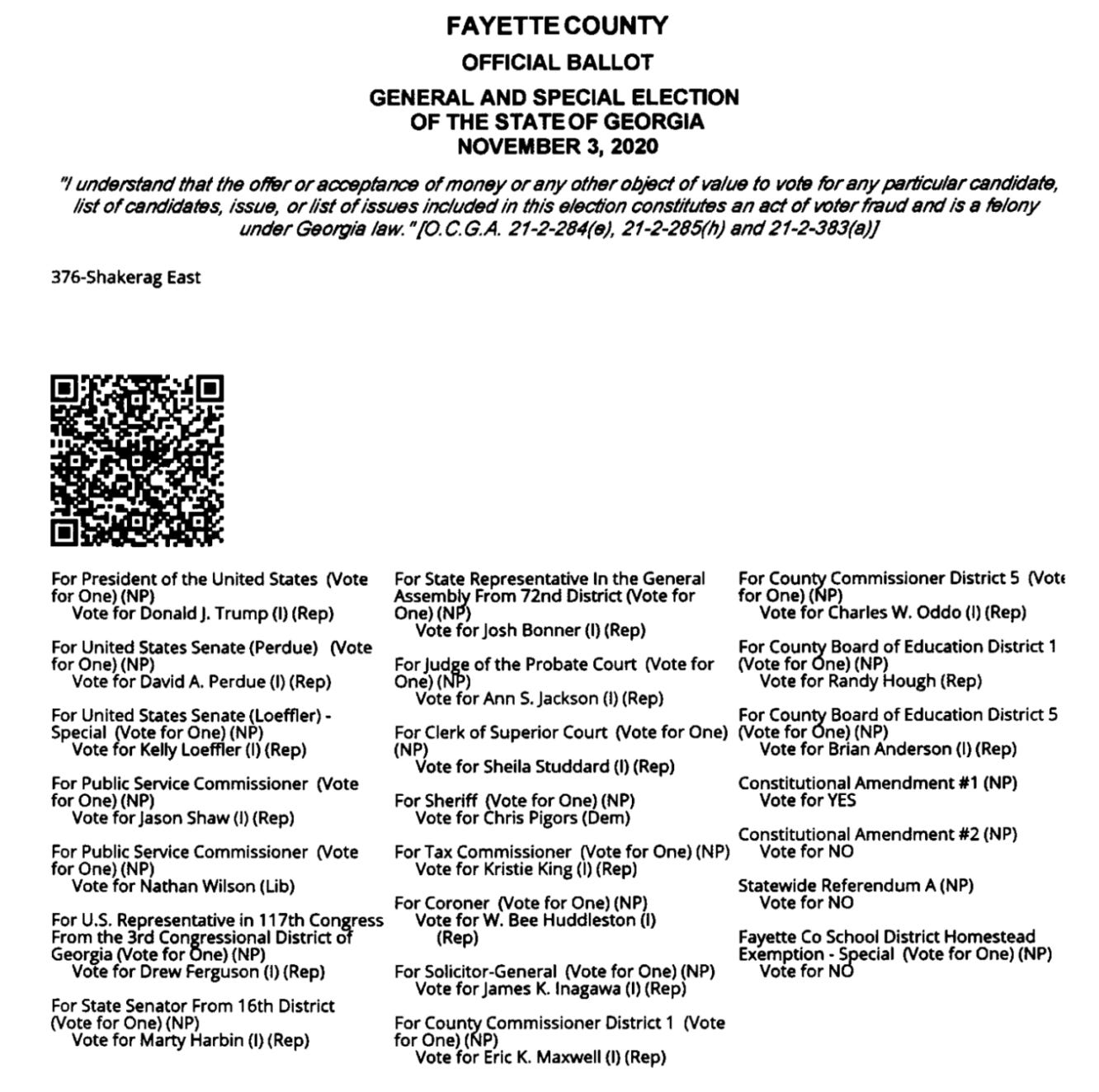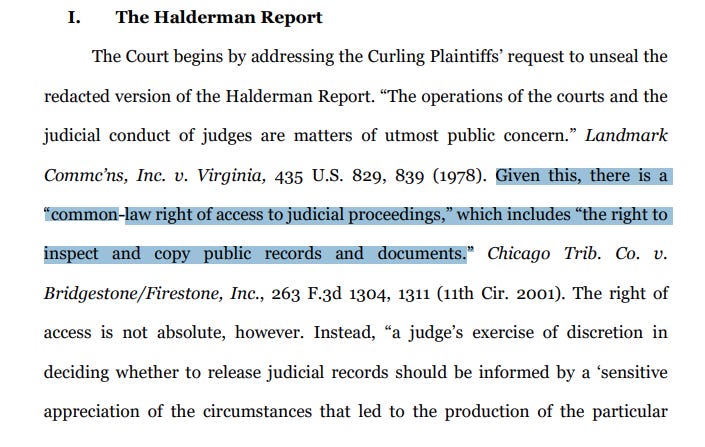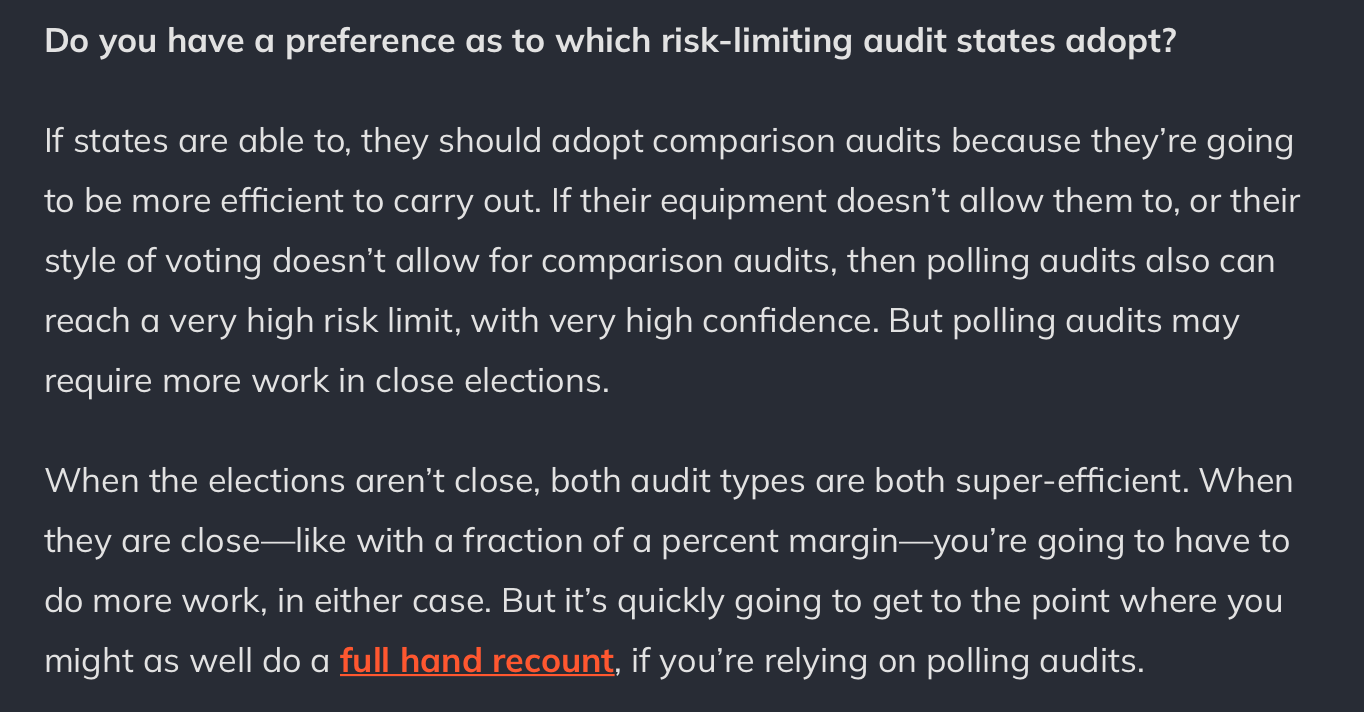On June 14, Judge Amy Totenberg of the Federal District Court for the Northern District of Georgia, an Obama appointee, ordered a 96-page report authored by J. Alex Halderman, a professor at the University of Michigan, and Drew Springall, a professor at Auburn University to be unsealed as part of the longstanding lawsuit, Curling v. Raffensperger.
Halderman’s report, which details the vulnerabilities of Georgia’s Dominion ImageCast X voting system, has been anxiously anticipated. Georgia Secretary of State Brad Raffensperger is quoted in January 2022 as saying:
“The public deserves to know the context of J. Alex Halderman’s claims and his testimony regarding the 2020 election. We are taking on these claims in court, and we will win.”
Raffensperger sounds more like a vendor salesperson than an elected official, and now, thanks to the released report, even mainstream media is forced to cover a nightmare that won’t go away – a string of poorly run elections in Georgia beginning in 2020, and persisting to this day, and apparently far beyond it without further intervention, as no maintenance is planned on Georgia’s leaking cesspool of an electronic elections infrastructure until after the 2024 election. The independent MITRE report, basically Georgia’s rebuttal to any concerns expressed in Halderman’s work, was also made public by Judge Totenberg.
Georgia is perhaps the most vital of “toss-up” states in 2024, and one that I cannot see Team Trump failing to carry if they are to end up at 1600 Pennsylvania Avenue. It is imperative that Raffensperger and his cronies running Georgia’s elections are forced to dig themselves out from under new lawsuits daily until they enforce legitimate maintenance, or overhauls, of these systems.
Some high points of Halderman’s report, found in the summary page linked above:
*”The most critical problem we found is an arbitrary-code-execution vulnerability that can be exploited to spread malware from a county’s central election management system (EMS) to every BMD (ballot marking device) in the jurisdiction. This makes it possible to attack the BMDs at scale, over a wide area, without needing physical access to any of them.”
*No restrictions for what type of USB devices can be plugged in, allowing for intrusion and system compromise.
*Authentication protocol used to verify workers and voters is “broken,” meaning counterfeit access cards can be created.
*Scanners count QR codes, not text. If QR codes are manipulated, the votes may not be counted as printed.
From the summary page:
An attacker who wants to change votes has two good strategies: (1) Change only the data in the QR code; or (2) Change both the QR code and the text, in a way that agrees. The vulnerabilities we found would let an adversary carry out either attack by tampering with the ICX’s software.
If an attacker changes only the QR code, voters have no way to detect the change by looking at their ballots, since voters can’t read the QR code. The change might be detected in a manual recount or a risk-limiting audit (RLA) based on a review of the printed text, but that is unlikely given Georgia’s weak audit requirements, which have recently been further diluted. Absent a rigorous audit of the paper ballots for the affected contest, this style of attack could change an election outcome without detection.
Halderman closes shop by asserting a couple of “elephant in the room” opinions. He first points out Raffensperger’s clear indifference and lack of concern for the matter of election security, throwing him under the proverbial bus by pointing out how he has had access to the report for two years and still has no plans to upgrade system security. Most curiously, Halderman embraces the narrative that “no credible evidence” supports the claim that the 2020 election was stolen, with the certified results in Georgia standing independent of his own research.
Alright, Alex. I’ll show that icky part for you:
*Captain’s Battlegrounds Georgia Summary shows a 7.5% Trump victory in the 2020 election.
*Captain Keshel’s comprehensive review of Georgia’s 2020 election at 2023 Georgia GOP convention shows severe statistical abnormalities backing compromised election claims.
The Sizzle
I would have written up the Halderman report by now had I not been made aware of some new supporting information by a social media researcher using the alias “Paul Muaddib,” who has done extensive research not only on Halderman, but on Princeton professor Ed Felten, who has two decades of “experience” in testing, recommending, troubleshooting, and opining about voting machines, which have been unreliable as long as they’ve been in existence.
This researcher posted the following screen capture:
In the capture above, from Judge Totenberg’s order, Chicago Trib. Co. v. Bridgestone/Firestone, Inc., 2001, is cited, and refers to common-law right of access, clearly referring to trade secrets and confidential documents as it applied to the tire company two decades ago and their product’s involvement in a wrongful death. This raises the question of whether reports and expert witness highlighting system vulnerabilities now require, under common law, for election systems vendors to cough up trade secrets, source code, and other proprietary information in the interest of resolving the crisis of lost public trust in elections. Does Judge Totenberg’s order now give the green light for citizens to make common law cases in the interest of election security?
-
Furthermore, Paul also linked Brian Mechler’s review for the Texas Secretary of State of the same exact system Halderman’s report analyzed, which had this to say:
There was not a single component that I would recommend for use in elections in the State of Texas.
-
Five Concerns over the Halderman Report
These five concerns exist for me regarding Halderman’s motives in promoting his report, especially given his affirmation of the “no credible evidence” lie regarding fraud in the 2020 election.
1) With Garland Favorito and VoterGA continuing to make progress in court to gain access to ballots, is the Halderman report and its criticism of Raffensperger designed to force a “solution” to some known issues in the lead-up to 2024 to provide a false sense of security?
2) How did Halderman know potential hackers “chose not to pull the trigger” in 2018 but were waiting in anticipation to interfere in the 2020 election? I thought Chris Krebs said our elections were the safest and most secure they’ve ever been?
3) While Halderman does suggest getting access to physical ballots is a deterrent against machine fraud, he also promotes risk-limiting audits. If all ballots cannot be matched to a real, living human being, counterfeit ballots are going to be counted as votes. It is, as Peter Navarro says, the canvass and not the count that matters. I have proven the corruption in the Georgia voter rolls, especially in Metro Atlanta’s eight key counties. It appears his prescribed remedy is a misdirection, or pointless bridge to nowhere.
4) Furthermore, any solution that doesn’t support fully eliminating not only machines (ballot marking devices, scanners, tabulators, electronic poll books), but associated software, from elections leaves open the possibility that elections are going to be hacked or otherwise compromised, and it doesn’t matter whose technology is in play. In my second of 10 Points to True Election Integrity, Ban All Electronic Elections Equipment, I eliminate all such vendors from the market, because voters should be voting on hand-marked, hand-counted paper ballots that are voted in-person and counted at the precinct. Halderman seems to support tweaking the voting systems rather than eliminating them completely in favor of primitive, yet much more secure, systems.
5) In the aftermath of Hillary Clinton’s 2016 loss, a group of scientists led by Halderman admonished the Clinton camp to challenge election results over something the media would slam me as a conspiracy theorist for saying. From CNN:
Halderman…told the Clinton campaign they believe there is a questionable trend of Clinton performing worse in counties that relied on electronic voting machines compared to paper ballots and optical scanners…
The Midwest had been on a Republican trend for six years when Trump flipped Pennsylvania, Michigan, and Wisconsin. Georgia, on the other hand, had been won by Trump in 2016 with little effort and money, and then experienced one of the largest Republican vote gains in one election cycle in history in 2020, only to be lapped by a Democrat performance exceeding Barack Obama’s vote gain in 2008. Halderman appears to be quite selective when it comes to his suspicions if he thinks there’s nothing to see here regarding Georgia’s curious 2020 result, especially after The New York Times needle had Georgia going to Trump on election night with 98% certainty.
Conclusion
The Halderman report, for all its fallout, is good to have out there in the open and confirms what is understood as a baseline that electronic voting needs to be abolished because it is open to systemic intrusion and manipulation, and renders our elections practically inauditable.
While the work has been completed for some time, Halderman’s sudden promotion of it may be designed to give him distance if the house of cards in Georgia is about to fall thanks to the relentless pursuit of Georgia freedom fighters, VoterGA, and chaos in the areas of influence around the country, like Maricopa County.
Familiarize yourself with the report, understand that the same vulnerabilities and more exist with all electronic elections vendors, and solicit commentary from your county commissioners, elections officials, state officials, and representatives. Force them (peacefully, of course) to read it. After all, Halderman was held in high regard not so long ago when playing into the Russiagate nonsense. Maybe they’ll still see him the same way.
Author’s Note: Thank you for reading this report, which consists of yet another installment of critical curriculum for those seeking to restore trust in the nation’s elections. I have posted this article for all subscribers so they do not lack this important information. If you found it valuable, please share it with others, and if you have the means to do so, please join this journal as a paid subscriber. Thank you!







I am convinced the election rigging mafia manually stuffed some ballots for Killary in 2016 and realized they badly underestimated Trump's appeal. Then 2018 was a dry run for electronic election crimes on a widescale basis. Nobody piped up, at least not at a level we were aware of. Then 2020 was the full blown steal.
How do they keep getting away with this?